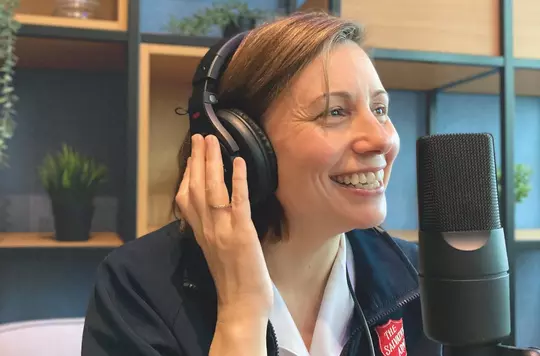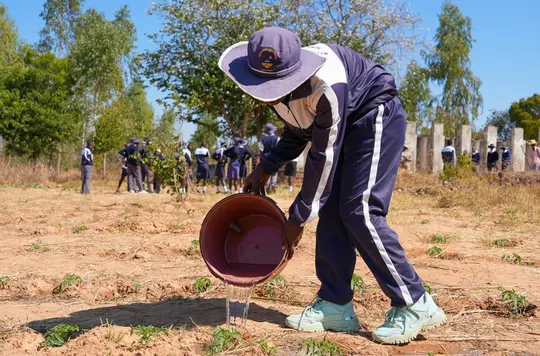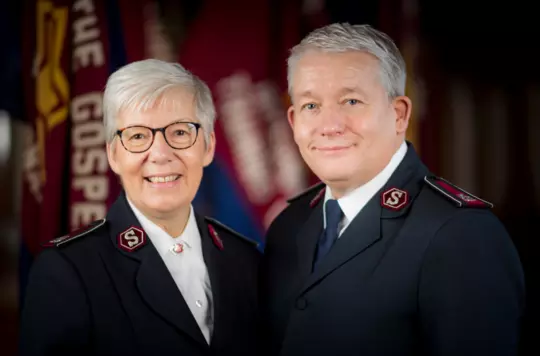6 April 2024
BBC One's The Assembly: A welcome idea
Reuben Dykes

Yesterday (Friday 5 April), the actor and director Michael Sheen took part in an interview at 10.40pm on BBC One. Asking the questions was a unique group of interviewees: 35 people from the ages of 18 to 77 who are autistic, neurodivergent or learning disabled. The half-hour programme, titled The Assembly, was an effort to put autistic and neurodivergent voices in a position of agency on screen.
As Reuben Dykes reflects on the premise of the show, he encourages us to be welcoming and inclusive.
I think this is a brilliant idea for a TV show. For people like myself with autism, no two people are the same. There are those who are able to be confident and others who are more within their shell. So a TV programme that enables people to come out of their shell – in a safe, comfortable environment – is a really important idea.
I was diagnosed at a young age and I’m always open with people about my autism. I don’t come blurting it out when I first meet people, but once I start to talk to them, I say I have autism. People, especially because we’ve got to know each other, sometimes raise their eyebrows, because to them I don’t appear to have autism. For me, it all comes down to the environment, the people and what I’m doing.
I host the music show Sunday Lunch: Reuben’s Pick ’n’ Mix on Salvationist Radio. There are Salvation Army songs and band pieces I love listening to. A favourite would probably be ‘Emblem of the Army’ or ‘Guardian of My Soul’.
When I was younger, I wasn’t a confident singer or a dancer – I’m not Strictly material, let me put it that way! I did drama at first, then singing came into it and I became more passionate about music, singing and musicals.
When Maca (Music and Creative Arts) were looking for singers for a project, I applied for that. They later emailed about the musical Belongings and I got cast as Kevin.
The challenge for me there is that the character doesn’t appear until the tail end of the first half of the musical, so it’s a lot of sitting around waiting and I can get very bored very quickly. But what really helps me is the wonderful songs in the musical – I love singing them!
Despite all this, unless someone else starts a conversation, I can be quite shy. So in a corps environment, for example, just making sure that there is a nice, friendly, calm and relaxed atmosphere can be a tremendous, positive step towards being more inclusive.
The way my brain works is logic and reasoning. With faith, obviously, 9 times out of 10 you must think outside the box as opposed to inside it. But there is history to back up the Bible – and looking around at the beauty of God’s creation, the idea that we, that everything, just happened makes no sense. I find God uses the way my brain works for his glory and to teach me the importance of trust and faith.
As Christians, I think it is vital for us all to show love and respect to other people, to recognise their skills and gifts. It’s important to be welcoming so that you don’t suddenly become too much like a little club. I was preaching recently in a Sunday meeting and one thing
I mentioned was the danger of a church becoming the same people: that could mean some people are in danger of feeling shunned.
What can you do where you are to be welcoming and encouraging?
Reflect and respond
- What can you do to encourage and give opportunities to everyone?
- How welcoming and inclusive is the environment at your corps or centre?
Written by
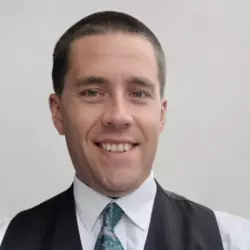
Reuben Dykes
Kidsgrove
Discover more
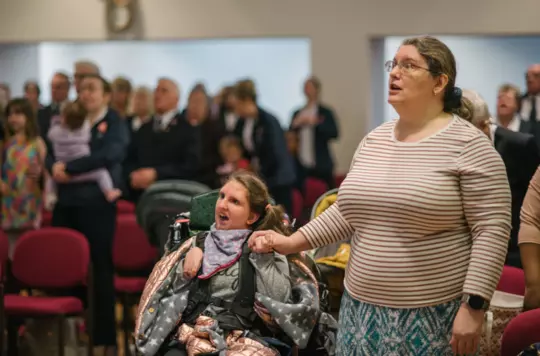
Ensuring equality, diversity and inclusion are at the heart of everything we do.
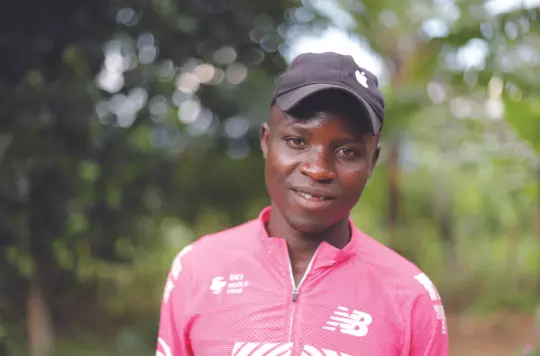
Hayley Still introduces the 2024 Helping-Hand Appeal.
